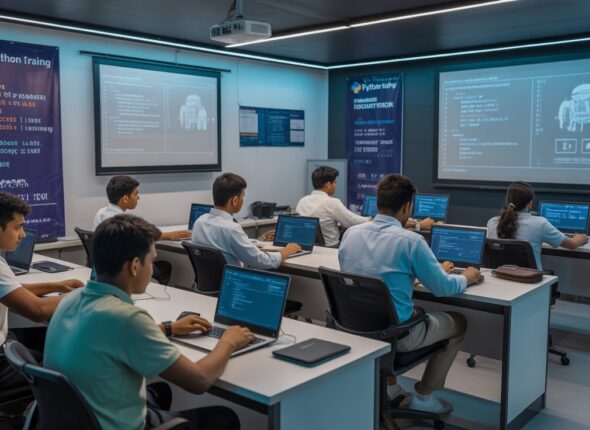World
Class Instructor
1:1 with
Industry Expert
400+
Global Hiring
55%
Avg. Salary Hike
- Overview
- Course Details
- Syllabus
- FAQ
Acquire Key Java Skills: Master Full Stack Development, Earn Certification, Launch Your Dev Career!
Elysium Academy is structured to develop industry-ready professionals by combining frontend technologies with powerful backend development. The program delivers in-depth training in Java programming, modern frameworks, database management, and application architecture. Learners gain practical experience in building secure, scalable web applications while adopting best practices used in enterprise-level software development.
2.8
Version
90 Hours
Duration
30 Hours
Theory
60 Hours
Practical
Version
2.2
Duration
65 Hours
Theory
12 Hours
Practical
65 Hours
- Industry Based Projects
- Personalized coordinator.
- Trainer feedback.
- Trainer availability post sessions.
- Get your staff certified.
- Certificate from governing bodies.
- Recognized worldwide
- Hands on assignment
- Master Java Fundamentals: Learn core Java concepts including variables, data types, loops, and functions.
- Dive Into Advanced Concepts: Understand object-oriented programming (OOP), error handling, and multithreading.
- Frontend Development: Get proficient with HTML, CSS, and JavaScript for building interactive user interfaces.
- Backend Development: Develop robust server-side applications using Java and frameworks like Spring.
- Implement machine learning algorithms with Scikit-learn.
- Web Services and APIs: Implement RESTful services and API integration.
Top companies offer this course to their employees
Course was selected for our collection of top-rated courses trusted by businesses worldwide.


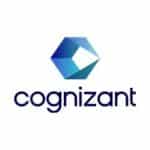


Salary
PER ANNUM
₹5,00,000
Job Growth
Current Month
22%
Offer Jobs
2026
8,200
Embark on your journey to becoming a proficient Full Stack Developer with Java at Elysium Academy. Our comprehensive program offers a deep dive into Java programming, equipping you with the essential skills needed to thrive in the dynamic field of web development.
Our Full Stack Developer Course with Java aims to equip learners with the mastery of Java programming language, essential for building robust web applications. Through hands-on training and expert guidance, you will delve into frontend and backend development, mastering concepts such as object-oriented programming, data management, and application security.
- Gain expertise in both front-end and back-end development with proficiency in Java, Spring, JavaScript, HTML, CSS, and SQL.
- Potential for rapid career growth into senior developer, tech lead, or architect roles.
- Develop enterprise-level applications, web services, and scalable web applications.
- Integrate Java applications with cloud services, microservices, and frameworks like Spring Boot and Hibernate.
- Engage with the robust Java open-source community for collaboration and skill enhancement.

Our Training Program Benefits
- Live, interactive training by experts.
- Curriculum that focuses on the learner.
- Challenge-based, hands-on project.
- Opportunities for team building.
- Cost- saving training.
- Convenient for your employees.
- Completely tailor-made curriculum.
Chapter-1 HTML 5
- Designing Webpages
- Design Considerations
- Basic HTML Tags
- Metadata
- HTML Styles
- Comments
- Block Quotes
- Horizontal Lines
- Special Characters
- Paragraph
- Line Break
- Blank Space
- Background Color
- Div Element
- Types of Lists
- Text Links
- Image Links
- New Window or Tab
- Email Address Linking Options
- Files Linking Options
- Image to Webpages
- Resize in Web Pages
- ALT Text
- Image Labels
- Insert Table
- Table Border
- Table Header
- Introduction
- Inserting
- Setting Height and Width
- Text Boxes
- Text Areas
- Check Boxes
- Menu Lists
- Radio Buttons
- Submit Buttons
- Reset Buttons
- Sending to Email
- Linking to Video and Audio Files
- Adding Video
- Adding Audio
- Setup Error Page
- Extract Error Code and Message
- Understand Error Debugging
- Log
- Enable or Disable Error Debugger
Chapter-2 CSS
- Create External CSS
- Linking to a CSS
- Adding Comments and Notes to CSS
- Create an Internal Style Sheet
- ID and Class
- Inline Style
- Emphasizing Text
- Decoration
- Transformation
- Styling Links
- Sizing Elements
- Text Wrapping
- Shadowing
- Colors
- Images
- Opacity
- Floating Images
- Image Galleries
- Image Sprites
- Fixed Images
- Margin
- Padding
- Border
- Outline
- Display and Visibility
- Grouping and Nesting
- Dimensions of Elements
- Positioning
- Floating
- Pseudo Classes
- Vertical Navigation Bar
- Horizontal Navigation Bar
- Inline
- Floating
- Borders
- Collapsed Borders
- Table Width and Cell Height
- Table Color
- Table Padding
- Transforms
- 2D Transforms
- 3D Transforms
Chapter-3 Bootstrap 5
- Containers
- Grid
- Tables
- Typography
- Colors
- Images
- Jumbotron
- Alerts
- Buttons
- Spinners
- Progress Bars
- Pagination
- Cards
- Navbar
- Breadcrumbs
- Select Menus
- Checks and Radios
- Range
- Floating Labels
- Form Validation
- System
- XSmall
- Small
- Medium
- Large
- XLarge
Chapter-4 Javascript
- Statements
- Variables
- Operators
- Data Types
- Functions
- Objects
- Events
- Strings
- Arrays
- Dates
- Sets
- Maps
- Errors
- Classes
- Modules
- JSON
- HTML DOM
- Web APIs
Chapter-5 JQuery
- Selectors
- Events
- Hide/Show
- Fade
- Slide
- Animate
- stop()
- Callback
- Chaining
- Get & Set
- Add & Remove
- CSS Classes
- Dimensions
- Load
- Get/Post
- noConflict()
- Filters
Chapter-6 Introduction to Java
- Keywords, Variables, and Operators
- Data Types
- Java String Basics
- Type Casting
- Operators
- Arrays
- Java Statements
- Java Method Parameters
- Java Method Overloading
- Java Scope (Local, Instance, Class)
- Java Recursion
Chapter-7 Java Classes
- OOPs (Object-Oriented Programming Concepts)
- Classes/Objects
- Class Attributes
- Class Methods
- Modifiers
- Encapsulation
- Packages
- Inheritance
- Polymorphism
- Abstraction
- Interface
- Enums
Chapter-8 Java Web Application Technologies
- Java Date
- LinkedList
- HashMap
- HashSet
- Iterator
- Explanation
- Create/Write Files
- Read Files
- Delete Files
Chapter-9 Servlet
- Servlet Interface
- HttpServlet Class
- WAR File (Web Application Archive)
- Servlet with IDE
- Servlet Request
- Servlet Collaboration
- ServletConfig
- ServletContext
- Attribute in Servlet
- Session Filter
- Servlet CRUD
- Servlet Pagination
- Servlet Miscellaneous
- Development
Chapter-10 JSP(Java Server Page)
- Introduction to JSP
- JSP-Scripting Elements
- JSP-Directives
- JSP-Actions
- JSP-Expressions
- JSP-Implicit Objects
- JSP-Request
- JSP-Response
- JSP-Session
- JSP-Exceptions
- JSP-JSTL Overview
- Overview of JSTL Core Tags
- Advanced JSP Concepts
Chapter-11 JDBC API
- JDBC Drivers
- Connections
- Statements
- Prepared Statements
- Create Prepared Statements
- Select Using Prepared Statements
- Update Using Prepared Statements
- Insert Using Prepared Statements
- Result Sets
Chapter-12 SQL
- What is DQL?
- Purpose of DQL
- Select
- What is DML?
- Purpose of DML
- Insert Data
- Update Data
- Delete Data
- Lock Data
- What is DCL?
- Purpose of DCL
- Grant Data
- Revoke Data
- What is TCL?
- Purpose of TCL
- COMMIT
- ROLLBACK
- SAVEPOINT
- Hands on INSERT Data
- SELECT
- Hands on SELECT Query
- Multi Inserts
- Hands on Multi Inserts
- NOT NULL
- Hands on NOT NULL
- DEFAULT Values
- Hands on DEFAULT Values
- AUTO INCREMENT
- Hands on AUTO INCREMENT
- ORDER BY
- ALIASES
- UNIONS
- CONSTRAINTS
- VIEWS
- What is Primary Key?
- Creating a Primary Key
- Dropping a Primary Key
- What is Foreign Key?
- Creating a Foreign Key
- Dropping a Foreign Key
Chapter-13 Introduction
- Getting the Required Libraries for Hibernate
- Creating a Hibernate Persistent Class
- Providing an XML-Based Hibernate Mapping
- Providing an Annotation-Based Hibernate Mapping
- Providing a Hibernate Configuration Using an XML File
- Providing a Hibernate Configuration Using File Properties
- Configuring Hibernate Programmatically
- Introduction
- Building a Session Factory
- Creating a Generic Session Factory Provider Class
- Opening a New Session
- Opening a Stateless Session
- Saving an Object to the Database
- Fetching an Object from the Database
- Removing an Object from the Database
- Updating an Object
- Creating a Criteria
- Restricting the Results Using a Criteria
- Pagination Using a Criteria
- Sorting the Result
- Transforming a Result
- Using Basic Projection
- Introduction
- Declaring a Class as an Entity and Creating a Table in the Database - @Entity and @Table
- Creating a Column in the Table - @Column
- Creating the Primary Key and Composite Primary Key Column - @Id and @IdClass
- Creating an Auto Generator Column
- Introduction
- Persisting List
- Persisting Set
- Persisting Map
- Persisting Array
- Introduction
- One-to-One Mapping Using Foreign Key Association
- One-to-One Mapping Using a Common Join Table
- One-to-One Mapping Using a Common Primary Key
- One-to-One Mapping or Many-to-One Mapping
- Many-to-Many Mapping
- Introduction
- Working with an Alias
- Performing Aggregate Operations
- Executing a Sub Query Using a Criteria
- Executing a Native SQL Query
- Executing a Query Using HQL
- Using Formula in Hibernate
- Working with Named Query
Chapter-14 Getting Started
- What is Spring?
- Setting Up Your System
- Introducing Maven
- Using Maven on the Command Line
- Class Path Contexts
Chapter-15 Basic Bean Configuration
- Setting Bean Properties
- Constructor Arguments
- Dependency Injection
- Bean Scope
- Factory Beans and Methods
- P Namespaces
- List of Beans
Chapter-16 Auto Wiring
- Autowiring by Type
- Autowiring by Name
- Autowiring by Constructor
- Default Autowiring
- Removing Autowire Ambiguities
Chapter-17 Wiring with Annotations
- "Autowired” Annotation
- Optional Beans
- Using Qualifiers
- Annotation-Based Init and Destroy Methods
- Setting Property Values via Annotation
Chapter-18 SPEL
Spring Expression Language (SPEL)
- Introduction to SPEL
- Using SPEL with Annotation
- Some Useful SPEL Operators
Chapter-19 Working with Databases
- Creating Database with MySQL
- Implementing DAO Pattern
- Downloading Connection JAR
- Configuring Connection with Apache
- JDBC Templates
- Querying Database (CRUD Operations)
- Transactions with Prepared Statements
Chapter-20 Web Applications with Spring MVC
- Maven Concepts
- Bringing in Maven
- Dispatcher Servlet
- Adding Data to the Session
- Bringing in DAO Code and Controllers
Chapter-21 Aspect Oriented Programming (AOP)
- Annotation-Based Aspects
- Wildcards in Pointcut Expressions
- Advice Types: After, Around, etc.
- Proxies
- Point Cuts
Chapter-22 Spring Web Flow
- Introducing Web Flow
- Flow Registry
- Hooking Up URLs
- Messages
- Validating Web Flow Forms
Chapter-23 JSON And AJAX
- Creating JSON Server
- Updating Dynamically with jQuery
- Generating Pages with JavaScript
- Posting Back JSON Data
- User Feedback
- Sending Email with Spring Mail
Chapter-24 Spring Data JPA
- JPA Dependency
- Maven Dependency
- Create the Model Class
- Create the Repository
- Show SQL
Chapter-25 Create Rest Crud API
- REST Web Services Using Spring Boot
- Create Database Table
- Model and Repository
- JPA Annotations
- REST CRUD API Creation
Chapter-26 Creating Rest Client
- Introduction
- REST Template GET Method
- POST Method
- PUT Method
Chapter-27 Spring Boot Micro Services
- What is a Microservice
- Creating Microservices
- Tomcat Deployment
- Thymeleaf Concepts
What is the Full Stack Developer Course - Java offered by Elysium Academy?
The Full Stack Developer Course - Java at Elysium Academy provides training in full-stack development using Java, covering front-end technologies and Java-based back-end frameworks like Spring and Hibernate. This course is ideal for those looking to develop enterprise-level applications.
What makes Elysium Academy the best Full Stack Developer training center near me?
Elysium Academy is the top choice for Full Stack Developer training in Java due to its industry-relevant curriculum, practical learning approach, and experienced instructors who guide you through building robust, scalable applications.
What are the prerequisites for enrolling in the course?
While there are no specific prerequisites, basic knowledge of programming concepts and familiarity with HTML, CSS, and JavaScript would be beneficial.
What topics are covered in the course curriculum?
The course covers a wide range of topics including Java fundamentals, frontend development using HTML, CSS, and JavaScript, backend development with Java Servlets and JSP, database management with MySQL, and more.
Will I receive any certification upon completion of the course?
Yes, upon successful completion of the course, you will receive a certification from Elysium Academy, which is recognized by industry professionals.
Are there any industry projects included in the course?
Yes, the course includes hands-on industry-based projects that allow you to apply your skills to real-world scenarios, providing valuable practical experience.
Is there any placement assistance provided after completing the course?
Yes, Elysium Academy offers placement assistance to help you secure job opportunities in reputed companies upon completion of the course.
Can I access the course materials and resources after completing the course?
Yes, you will have access to the course materials and resources even after completing the course, allowing you to review and revise whenever needed.
What career opportunities are available after completing the course?
Upon completion of the course, you can pursue roles such as Full Stack Developer, Java Developer, Web Developer, Software Engineer, and more.
How long does it take to complete the Full Stack Developer Course - Java?
The duration of the course may vary depending on the mode of study (full-time, part-time, online), but typically ranges from 3 to 6 months.

- Full Stack Developer Course - Java Professional
- Duration: 90 Hours
- Level: Beginner
- Days: 90 Days
- Chapters: 27
- Language: English
- Certifications: Yes
- Code: EAPL/PROF/PRTC08
- Course Code: EAPFJ
- Sub Category: Full Stack Development Training Course
Thank you!
We will contact you soon.

Comprehensive Java Curriculum
Master Java programming language from basics to advanced topics, covering core concepts, object-oriented programming, data structures, and more.

Backend Development with Spring Boot
Learn to build robust backend applications using Spring Boot framework, including RESTful APIs, security implementation, and integration.

Frontend Development with Angular or React
Gain proficiency in frontend development with Angular or React frameworks, creating dynamic and responsive user interfaces for web applications.

Database Integration and Management
Explore database management systems like MySQL or MongoDB, and learn to integrate databases into Java applications for efficient data storage and retrieval.

Full Stack Project Development
Utilize your Java expertise by working on practical projects where you may combine front-end and back-end development to build complete stack web apps from the ground up.

Industry-Relevant Tools and Technologies
Get hands-on experience with popular development tools and technologies used in the industry, ensuring readiness for a career as a Full Stack Java Developer.
What Will You Learn?
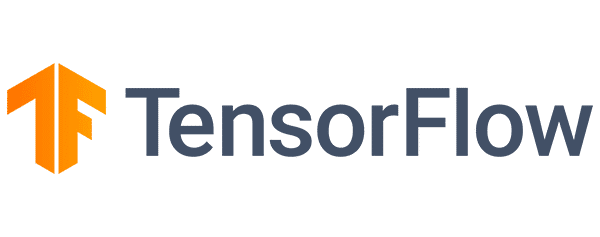
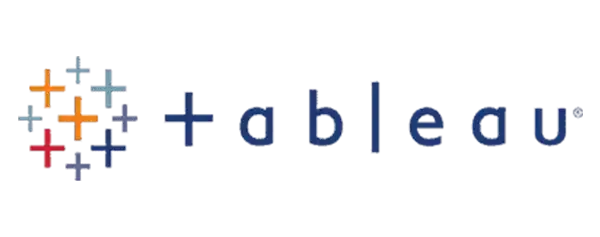
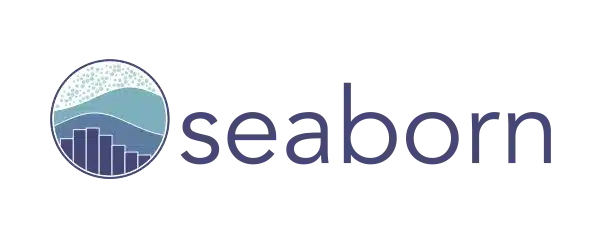
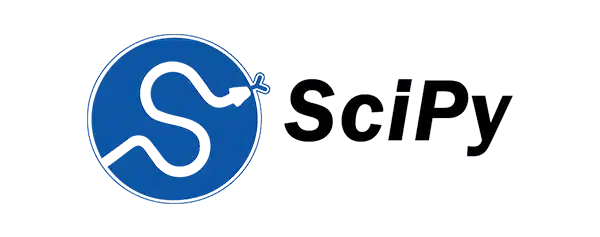
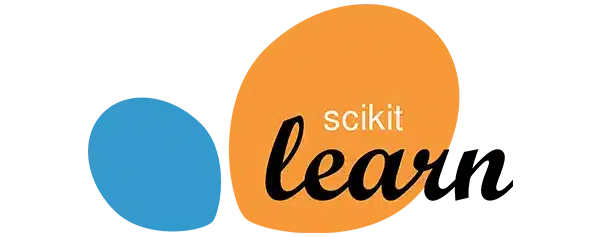

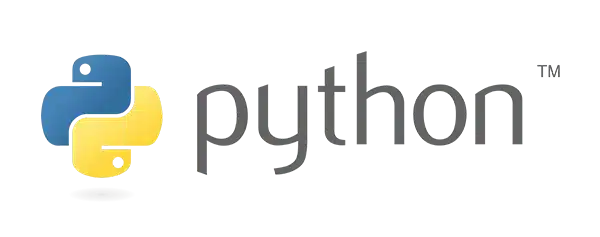

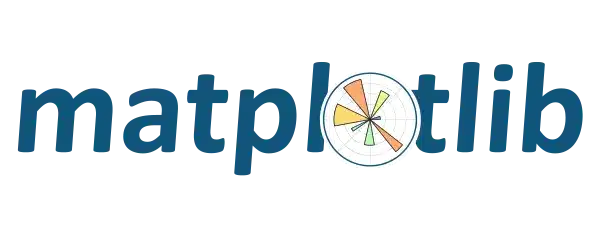

Our Latest Blogs
Python Course in Coimbatore: Job-Oriented Training with Placement Support
If you look at today’s job market, one skill consistently stands out across IT, data science, AI, automation, and web…
Best Artificial Intelligence Course to Build Your AI Career
Table of Contents Artificial Intelligence Course is no longer a futuristic concept—it is actively transforming how the world works…
Which Digital Marketing Skills Are Highest-Paying | Top Digital Marketing Course Institute Guide
In today’s fast-evolving digital economy, businesses of all sizes are relying heavily on online marketing strategies to grow their brand,…
Related Courses
Core & Advanced Java Programmer Training Course
Master both Core and Advanced Java programming skills with our comprehensive training course, designed to take your expertise.
Master in Programming Language Training Course (Core Java, Core Python)
Master the essentials of Core Java and Core Python in our intensive programming course designed for aspiring java and python...
Core Java & Concepts Training Course
Master the fundamentals of Java programming with our comprehensive Core Java & Concepts Training Course, designed for aspiring developers.

Recommend your friends/colleagues and earn gift vouchers worth up to INR 1000/-!
Invite friends to join our community, and receive valuable gift vouchers as a token of appreciation for each successful referral. Spread the word about our referral program today and start earning rewards!























